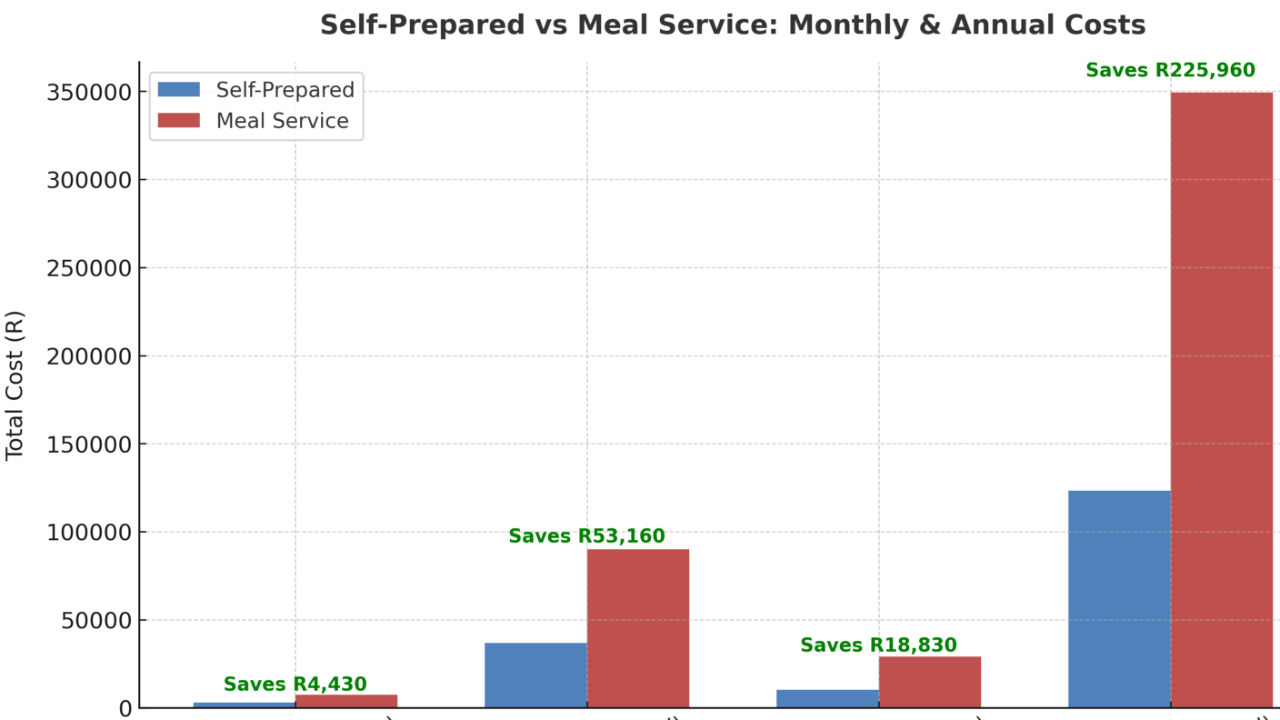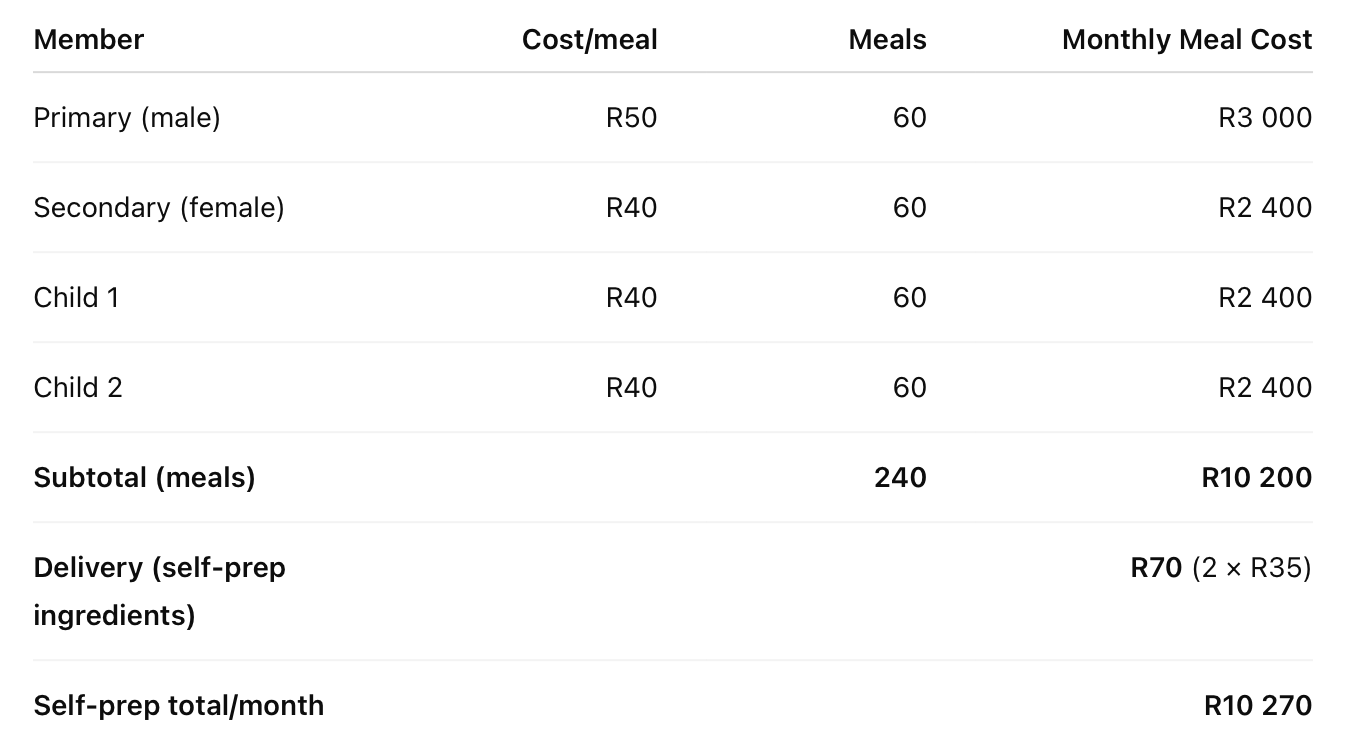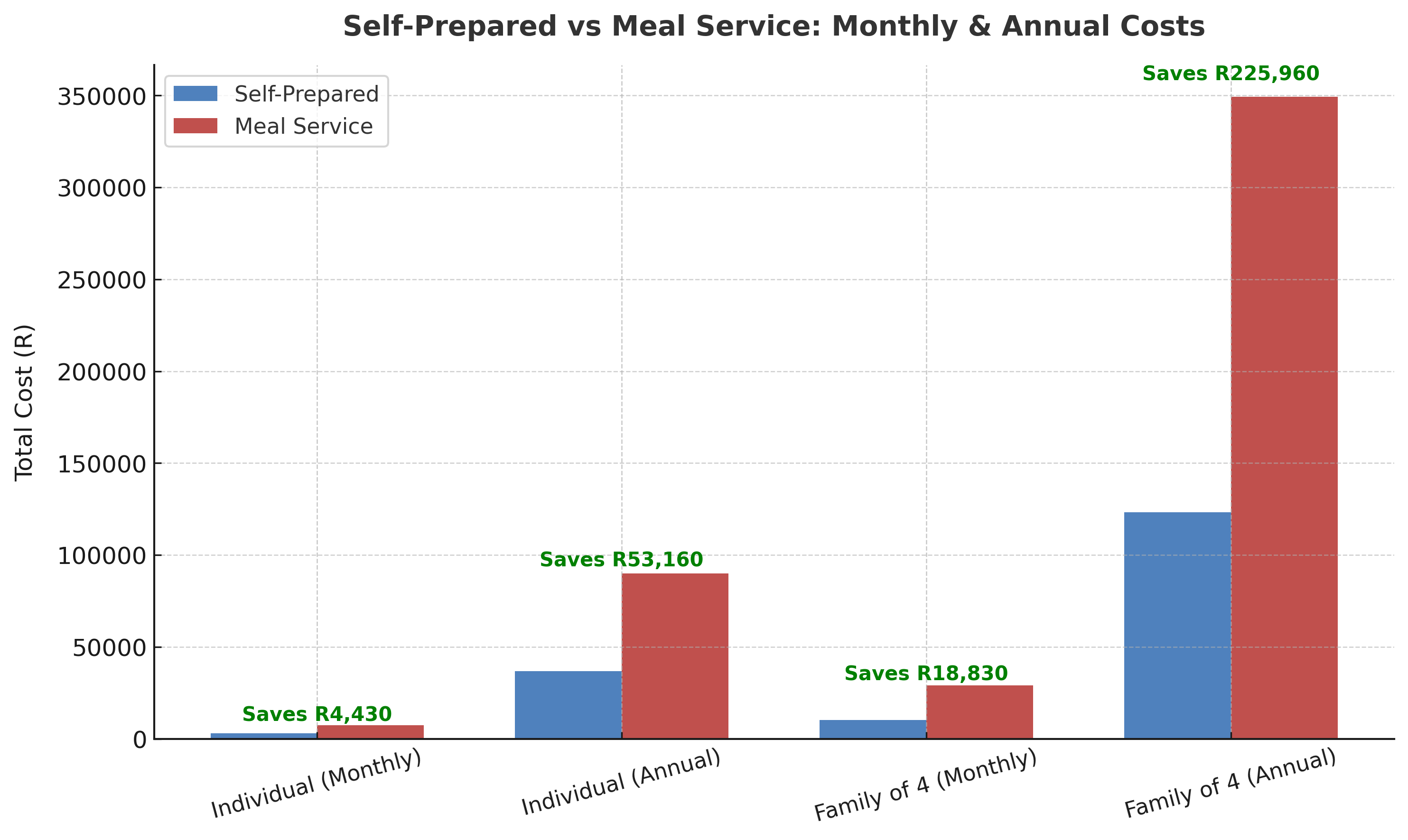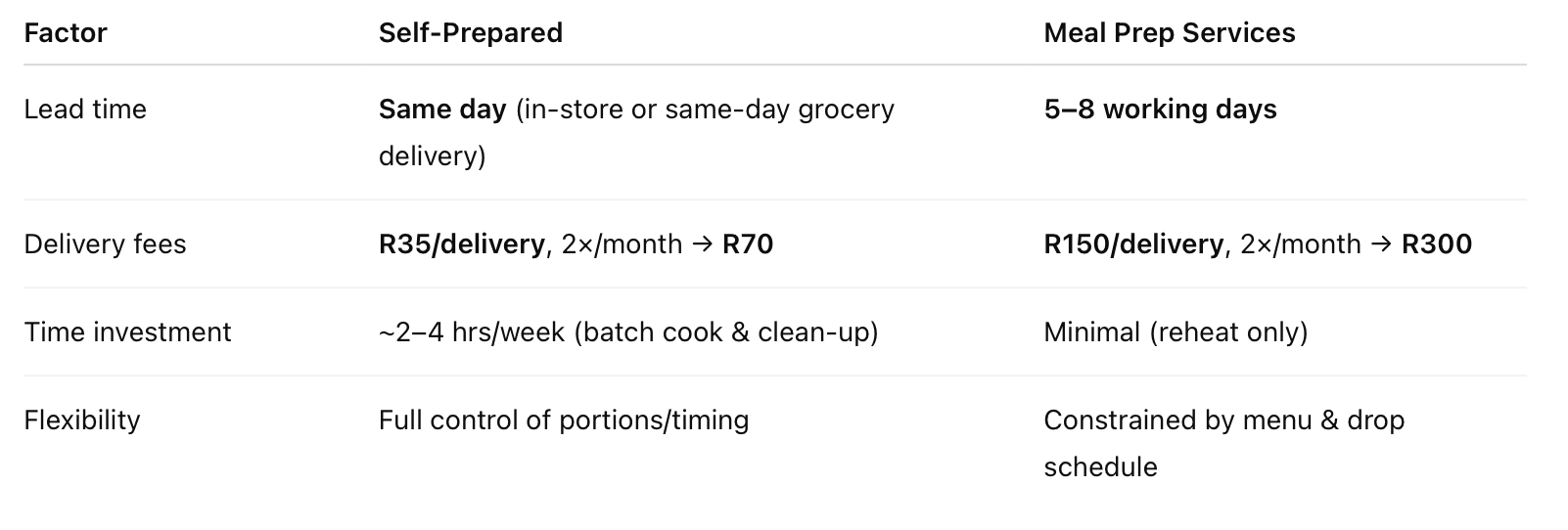Feasibility Study: Self-Prepared Meals vs Meal Prep Services

Introduction:
This study compares self-prepared meals with commercial meal services in terms of cost, convenience, empowerment, and long-term sustainability.
It shows that cooking your own meals can cut costs by over 50%, provide greater control over nutrition, and offer far better scalability for families.
While meal prep services are convenient, their higher costs, limited customisation, and reduced flexibility make them less ideal for anyone seeking a truly personalised and sustainable approach to healthy living.
Assumptions:
-
Meals per month: 60 per person (2 meals per day)
-
Self-prepared cost per meal:
-
Primary member (male): R50
-
Secondary member (female): R40
-
Children (2x): R40 each
-
-
Ingredient delivery for self-prep: Checkers Sixty60 @ R35 per delivery, 2×/month → R70/month
-
Meal service price: R120 per meal (average of South African meal prep services)
-
Meal service delivery: R150 per delivery, 2×/month → R300/month
-
Delivery lead time:
-
Meal service: 5–8 working days
-
Self-prep: Same day (in-store or same-day grocery delivery)
-
Individual — Monthly & Annual Costs
Monthly (60 meals):

Annual (12 months):

Individual Monthly Saving R4 430 (R7 500 – R3 070)
Individual Annual Saving R53 160 (R90 000 – R36 840)
For Family of Four — Monthly & Annual Costs
(60 meals each; primary male @ R50, female @ R40, 2× children @ R40)
Monthly (240 meals total):

Meal service (family):
-
Meals: 240 × R120 = R28 800
-
Delivery: R300 (2 × R150)
-
Total/month: R29 100
Annual (family):

Family Monthly Saving R18 830 (R29 100 – R10 270)
Family Annual Saving R225 960 (R349 200 – R123 240)

Convenience & Practicality
Analysis:
Meal services excel in short-term convenience — no time spent cooking, shopping, or cleaning. However, this convenience comes at a significant cost and often reduces your ability to manage your nutrition with precision. Self-prep requires more effort, but batch cooking and meal planning can reduce time costs while maintaining flexibility.

Empowerment, Customisation & Nutritional Precision
Self-prepared meals empower individuals with complete control over their nutrition:
-
✅ Macronutrient targeting: Adjust protein, carbohydrate, fibre, and fat levels to align precisely with body composition and performance goals.
-
✅ Micronutrient optimisation: Choose nutrient-dense foods to support energy, hormone balance, and recovery.
-
✅ Culinary flexibility: Experiment with spices, flavours, cooking methods, and cultural cuisines — increasing meal satisfaction and adherence.
-
✅ Quality assurance: Select premium ingredients rather than relying on bulk-prepared, standardised meals.
Meal prep services, on the other hand, typically offer fixed calorie ranges and generic macro splits.
This “one-size-fits-all” approach often fails to match individual needs, especially when goals evolve over time.
Family Scalability & Sustainability
The cost and practicality gap between self-preparation and meal services widens significantly when scaled beyond one person.
This scalability advantage makes self-preparation the clear winner for families seeking sustainable, long-term nutrition strategies. It allows bulk purchasing, flexible portioning, and significant cost reductions — all while maintaining quality and personalisation.
Long-Term Maintainability & Strategic Conclusion
From a long-term transformation perspective, self-prepared meals are the superior choice across nearly every measurable metric:
-
For an individual, self-prepared saves ~R4.4k/month (≈ R53k/year) including realistic delivery fees.
-
For a family of four, self-prepared saves ~R18.8k/month (≈ R226k/year) including delivery.
-
Self-prep provides same-day availability, macro precision, taste control, and materially lower per-meal cost (≈ R42.79 vs R121.25).
-
Meal services still suit short-term, high-convenience needs, but the long-term maintainability and financial logic strongly favour self-prepared meals
Meal prep services remain a valuable tool for individuals with extremely limited time or temporary convenience needs. However, for those committed to meaningful, lasting body and lifestyle transformation, self-prepared meals provide the best balance of cost, control, sustainability, and empowerment.
My Final Recommendation:
For most individuals and families pursuing long-term wellness, the evidence is clear: self-preparation is the more financially viable, nutritionally precise, and sustainable strategy.
Meal services can serve as a useful supplement, but they should not replace the fundamental habit of preparing and controlling your own nutrition.
HAPPY PREPPING!
- Jacque Visagie
PS. Use the Kaizen Meal Cost Feasibility Calculator to work out how much you and your family could safe if you home cook.
